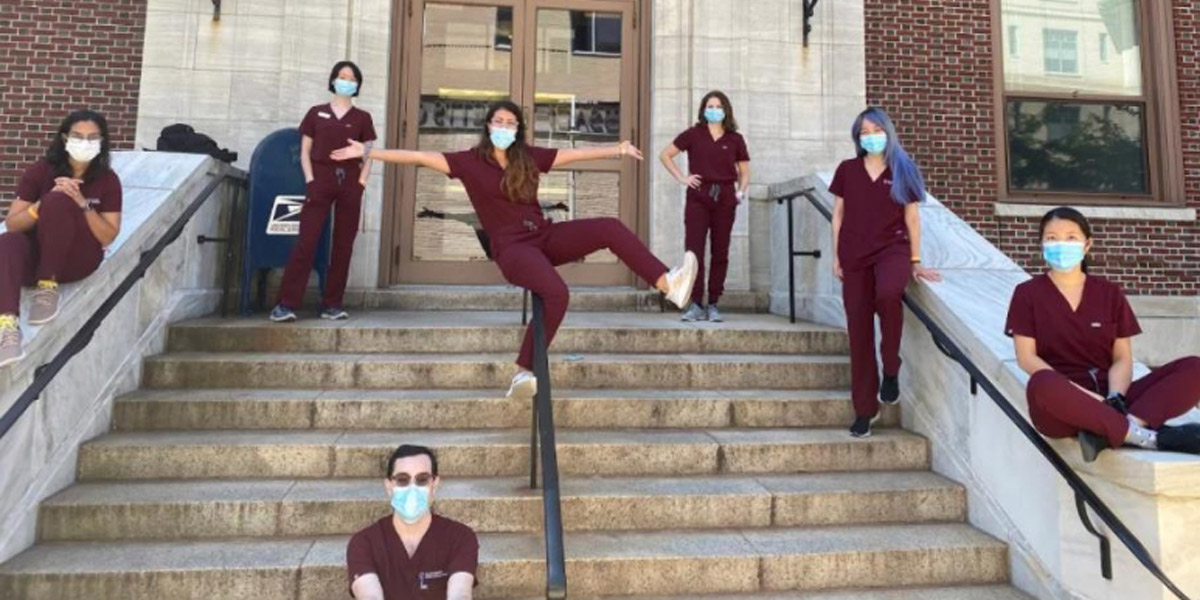Studying Overseas – Planning For The New Normal
For students in Asia who are planning to study overseas later this year, the mist is slowly clearing as governments start to relax their COVID-19 restrictions and universities make plans to return to (at least, in part) face-to-face teaching. This is not to say that everything will return to pre-pandemic norms – there will be layers of added safety precautions to be negotiated, and many universities will incorporate developments that the pandemic accelerated such as hybrid online/physical teaching. However, indications are that confidence has returned to the international education market and students, including those that postponed their study abroad plans from last year, are intent on heading overseas to start or continue with their higher education studies.
What can international students expect when they begin their courses later this year, and what extra hurdles will they face when travelling abroad? The students we have spoken to seem quite relaxed about the health risks associated with travel and study as the most popular study abroad destinations 14 such as the UK, United States, Canada and Europe have made significant progress with mass vaccinations – more so than many of the students’ home countries in Asia. Their major concerns seem to revolve around practicalities such as visa delays and local quarantine rules. In such a volatile global situation, rules and guidance are changing weekly, and the regulations in place now will almost certainly not be the same in September. So the most important piece of advice is for students to keep up to date with the changes in requirements. The best starting place will almost always be the destination universities, who are updating their websites almost daily with advice for new and returning international students. As well as providing detailed information about travel rules and regulations they will outline the steps that they are taking to ensure that students are safe – not just from COVID-19 but also in terms of general physical and mental wellbeing. Some of the key points are
Testing – All of the major international study destinations require international students to take a COVID-19 test 48-72 hours before departure and to present the negative result prior to boarding the flight. Some countries such as Canada also require a test on arrival, the UK asks for tests on Day 2 and Day 8, and the US needs a test on Day 3. It is vital that students are fully updated on the particular type and timing of the required pre-departure test. Universities will also have testing programmes in place, such as the University of Pennsylvania’s “Gateway” testing upon arrival at the university.
Vaccinations – Universities will have their own requirements concerning the need for students to be vaccinated. For example, Western University in Canada requires students who will be in university residences to have had at least one vaccination before they arrive, whilst the University of Toronto allows vaccinations within 14 days of arrival. Whilst many UK and US universities will not insist that incoming students are fully vaccinated, they strongly recommend it and non-vaccinated students may find that there are significant delays to when they can start their on-campus classes. It is important that students check that the vaccinations they have received in their home countries are accepted by the host country too.
Quarantine and welfare – Students heading to the UK face either compulsory hotel quarantine or selfisolation (depending on the country they departed from) until they have completed a Day 8 COVID-19 test. However, there is an optional Day 5 “Test and Release” scheme for an early release from quarantine or self-isolation. Some institutions, such as the University of East Anglia (UEA) will support the Test and Release scheme by paying for the early test. UEA students in the university student residences will receive food, essential supplies and wellbeing advice during their self-isolation and Bristol University provides foodboxes to cover the period of self-isolation. For students from the socalled Red List countries who are required to quarantine in hotels, the cost includes all meals. Whilst the US currently has no national quarantine requirements except for high-risk countries, individual states
and institutions may have their own rules.
In addition to the advice provided by individual institutions, the Canadian University Affairs website (www.universityaffairs.ca) provides detailed information from all of the country’s universities. UKCISA – The UK Council for International Student Affairs (www.ukcisa.org) provides the same service. A good source of information for students planning on studying in the US is the We Go blog – www.wego.com.
One thing that all of the international universities emphasise to us is that, due to the long-term closure of visa offices during the height of the pandemic, there may be delays in issuing visas and so it is even more important to ensure that students are clear on deadlines and the document and compliance requirements as any errors will almost certainly cause students to miss the start of their courses.
Thanks to James Burnett, IES’s Director of University Prep Services for this excellent research
For a free consultation about studying at a top university please email: counselor@ies.network or
visit: https://www.ies.network/university/courses/

